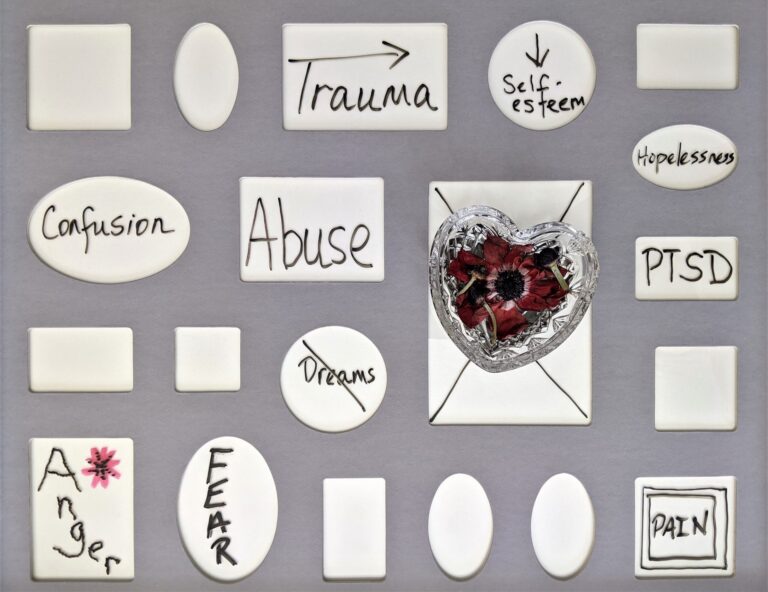A Close Look At PTSD Among Aging Adults In Queens NY

Take a closer look at PTSD among aging adults in Queens, NY. Discover the impact of PTSD on mental health, challenges faced by older individuals with PTSD, coping strategies for symptom management, available support services in Queens, and how to combat the stigma surrounding PTSD in this population. Explore the unique presentation of PTSD in aging adults and understand the significance of mental health awareness and resources.
The Impact of PTSD on Mental Health
PTSD can severely affect an individual’s mental health, exacerbating existing conditions. The impact of trauma on mental health is profound, especially among aging adults in Queens, NY. Research indicates that PTSD can lead to a range of psychological issues such as anxiety disorders, depression, and substance abuse problems. These conditions can further deteriorate one’s overall well-being and quality of life. Studies have shown that individuals with PTSD are at a higher risk of developing other mental health disorders, creating a challenging cycle to break. Addressing the mental health implications of PTSD is crucial in providing effective care for aging adults experiencing trauma-related symptoms in Queens, NY.
Challenges Faced by Aging Adults with PTSD
You’re facing unique obstacles as you age while dealing with this condition. Trauma triggers can become more pronounced in aging adults with PTSD, leading to increased challenges in managing symptoms. Additionally, cognitive decline, a common aspect of aging, can further complicate the effects of PTSD. Research suggests that as individuals get older, their cognitive functions may decline, affecting memory, decision-making abilities, and overall mental well-being. This decline can exacerbate the existing symptoms of PTSD such as flashbacks or hypervigilance. Therefore, it is crucial for healthcare providers to consider these factors when developing treatment plans for aging adults with PTSD to ensure comprehensive care that addresses both the emotional trauma and cognitive changes they may be experiencing.
Coping Strategies for Managing PTSD Symptoms
Dealing with triggers and cognitive decline while aging can complicate the effects of PTSD in individuals. To manage these symptoms, incorporating relaxation techniques and therapy options can be beneficial. Relaxation techniques such as deep breathing, meditation, or progressive muscle relaxation have shown to reduce stress and anxiety levels associated with PTSD. Therapy options like cognitive-behavioral therapy (CBT) or eye movement desensitization and reprocessing (EMDR) can help address underlying trauma and change negative thought patterns. Additionally, self-care practices like maintaining a healthy lifestyle, engaging in hobbies, and building a strong support system are essential for holistic approaches to managing PTSD symptoms effectively as you age. It’s crucial to explore various coping strategies to find what works best for you in your unique journey of healing.
Support Services Available in Queens, NY
Incorporating relaxation techniques and therapy options can be beneficial for individuals seeking support services in Queens, NY. Community outreach programs play a vital role in connecting aging adults with PTSD to the available resources. Therapeutic interventions such as cognitive-behavioral therapy (CBT) and Eye Movement Desensitization and Reprocessing (EMDR) have shown effectiveness in managing PTSD symptoms among this population. Support services in Queens often include group therapy sessions tailored to address the unique needs of aging adults struggling with PTSD. These sessions provide a safe space for individuals to share their experiences, learn coping strategies, and foster a sense of community. By utilizing these support services, individuals can receive guidance and develop skills to navigate the challenges associated with PTSD effectively.
Addressing the Stigma Surrounding PTSD in Older Adults
Addressing the stigma surrounding PTSD in older adults requires understanding and empathizing with their unique experiences. Trauma response among aging individuals can manifest differently due to generational differences in how mental health issues were perceived and treated. Older adults may have grown up in an era where discussing emotional struggles was taboo, leading to underreporting of PTSD symptoms. This generation might also view seeking help as a sign of weakness, further perpetuating the stigma. Understanding these historical contexts is crucial in providing effective support for older adults with PTSD. By acknowledging generational differences and approaching treatment with sensitivity, healthcare providers can create a safe space for older individuals to address their trauma responses and work towards healing.
Differences in PTSD Presentation in Aging Population
Moving on from the stigma surrounding PTSD in older adults, let’s delve into the differences in PTSD presentation within the aging population. As individuals age, their experiences and responses to trauma can manifest uniquely compared to younger counterparts. Research indicates that older adults with PTSD may display symptoms such as memory issues, physical ailments, and increased sensitivity to stressors. Understanding these variations is crucial for healthcare providers when diagnosing and treating PTSD in the elderly.
Treatment options for PTSD among aging adults often involve a combination of therapy and medication tailored to address their specific needs. Cognitive-behavioral therapy has shown effectiveness in this demographic by helping individuals reframe negative thoughts and behaviors. Additionally, considering risk factors such as comorbid medical conditions or social isolation is essential in providing comprehensive care for older adults with PTSD.
Importance of Mental Health Awareness and Resources
You should prioritize understanding mental health awareness and available resources to support yourself or others in times of need. Mental health education plays a crucial role in recognizing and addressing issues related to mental well-being. Engaging in community outreach programs can help create a supportive environment for individuals struggling with mental health challenges. Additionally, accessing therapeutic interventions such as counseling or support groups can be beneficial in managing stress, anxiety, or depression. Self-care practices like mindfulness, exercise, and proper sleep can also contribute to improving mental health. By being informed about mental health resources and developing healthy coping mechanisms, you empower yourself and those around you to navigate difficult situations with resilience and strength.


